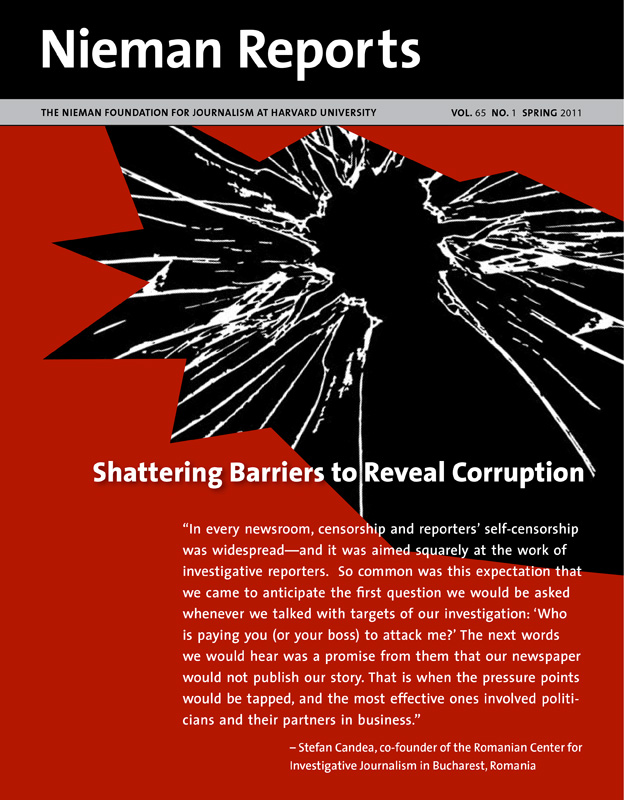
Questions arose in South Africa about improprieties in a major World Cup soccer contract after it was learned that a black security guard who, on paper, was a 26 percent owner of the multimillion-dollar company lived in the brick house, above, in a poor township near Johannesburg. Photo by Kevin Sutherland/Sunday Times.
It is the world’s biggest sporting tournament, with the final game watched by an estimated 700 million people in more than 100 countries. For the country fortunate to woo the fickle attention of FIFA, the federation that governs soccer, and win the right to host the World Cup, it’s a potential windfall.
RELATED ARTICLE
“Arriving at a Sadly Familiar Crossroads”
– Rob RoseBut in South Africa, the 2010 host, the scrapping over tournament contracts was positively murderous—with hit squads set up to take out business rivals, contracts rigged, and black ownership credentials forged. This says nothing of the double-dealing among foreign companies that landed them deals with FIFA.
All of these stories were pursued—and published—by the press and to the regret of government officials who preferred to turn a blind eye to these shady dealings.
The African National Congress-led government spent $2.3 billion on building stadiums to host the games so getting the right black ownership credentials was crucial to winning part of this business. One poignant example of the corrupted spirit of black empowerment was seen in the contract the city of Johannesburg handed out to manage the $470 million Soccer City stadium that hosted the opening and final games. The 10-year management contract was awarded to a company called National Stadium SA, partly because its largest shareholder was supposedly 26 percent owned by a black man, Gladwin Khangale. Also, it emerged from secret documents that the city of Johannesburg would get none of the "rental" paid by FIFA for using the stadium—instead that cash would be managed by National Stadium SA.
Khangale, it emerged, is a former security guard with virtually no operational responsibilities at National Stadium SA. He’s not even allowed to sign any company checks. A trip I made to Khangale’s house in a poor township on the fringes of Johannesburg showed that he lived in a neighborhood where the average home had sold for $11,000 the previous year. Is this the home of a man dealing in shares in a company with multimillion-dollar contracts? Well, no, it isn’t.
Khangale told me that he did not pay a cent for those shares nor did he still own them. After the Sunday Times exposed these details, the city of Johannesburg launched investigations. But whether or not those inquiries reveal Khangale’s deal to be an elaborate case of "empowerment fronting," this is clearly not what the rainbow nation intended in 1994 when it pledged to share its wealth with all its citizens.
Rob Rose, a 2011 Nieman Fellow, is an investigative reporter in the business section of the Sunday Times, based in Johannesburg, South Africa.



